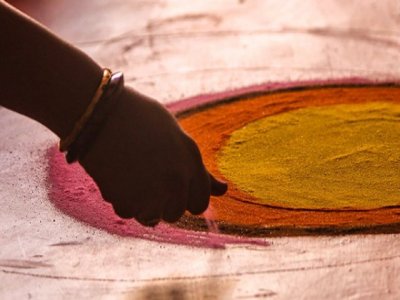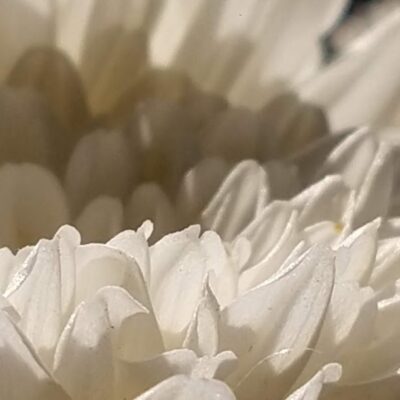My singing teacher and me were in a conversation, like we often are, and just like the songs she chooses for me, the conversations topic is also quite diverse and yet meaningful.
She was teaching me the Urdu ghazal by Medi Hassan, I have heard this and often thought it was difficult to comprehend and even more to sing.
Ranjish hi sahi dil hi dukhane ke liye aa
Aa phir se mujhe chod ke jaane ke liye aa
Let it be anguish, even to torture my heart, come
Come even if only to abandon me to torment again.
Radhika, my teacher will often tell me the meaning, the context and sometimes bitter sweet memories of the song and her. This makes the entire experience of the sing and singing, so much richer more intimate somehow.
One such thing she told me was, how this song, this complicated version of love which asks the beloved to come, to come even if it is to leave again, was taught to her at age 12. She laughed saying who teaches a 12 year old child such songs, who indeed. In her customary laugh and humour she said, I am now beginning to understand it a little.
We laughed and talked about how it was like Pickle. How it gets better with age. I was intrigued that Relationship and food yet again came in the same context.
This metaphor, brought up many things.
She pointed out how as children we are interested in the “pieces” of mango. And we grow older we want the masala, the spice. hummm . This was true, in my own experience. As a child I used to love pickle. It used to often be spicy, and so I used to wash it and then sit in a corner with a book and eat my pickle, slowly relishing it.
What was, am I doing? Why is pickle so important both the process and the act.
It also made me think of the phrase “Being in a Pickle”. Which means being in a tough hard spot.
If you are in a pickle, you are in a difficult position, or have a problem to which no easy answer can be found.The word ‘pickle’ comes from the Dutch word ‘pekel’, meaning ‘something piquant’, and originally referred to a spiced, salted vinegar that was used as a preservative.
In the seventeenth century, vegetables like cucumbers or gherkins that were preserved took the name. The ‘in difficulty’ meaning of the expression alludes to the idea of being as mixed up and disoriented as the pickled vegetables in an airtight. Stuck.
I often find the origins of some phrases a lot more meaningful and insightful.
So being in a pickle meant “being preserved”. And being in a tight spot. I wondered if the two are correlated.
Sometimes being in a tough spot, is a way in which things and sometimes sanity is preserved, sure. But not if that becomes a habit.
I have often found myself in a pickle. More times than not. I would somehow end up in a situation where I would speak first think later. Don’t you think before speaking, I would often be told or scolded.
Over the years, and many pickled situations later, I have learnt to be more discerning. I have learnt that not everyone likes the spicy masala, one grows into it. People have different ways in which they like ‘pickle’. I have to wait for the right time, right moment.
I have observed the way people eat, and in this case eat pickle tells a lot about them.
Some years ago ,I did a 2 years food experiment with myself. My theory was food “habits” were memory habits. And being stuck with food the we liked or hated had memory associated that we liked or hated. And were therefore stuck to that point in time. And so, letting go of that would perhaps unleash other things. What I did not know.
And on research I found, food and relationships had the same neural pathways. That is why we use food words as endearments – Sweety, sweety-pie, pumpkin etc. When upset we eat to push down “difficult emotions”.
For this experiment I systematically cut off food “I could not do without” – Pickle, and started to eat food I hated, bitter gourd, papaya, etc. Since I had no idea where this experiment would take me, I used to write down the changes it was doing to me. It was not easy at all.
We underestimate food habits and their hold on us.
As I slowly stopped pickle in phases. I also found other changes in me. I stared to be let go of the preserved “stuff”, clothes, books, shoes etc, start the practice of essentialism. Get out of a relationship I was stuck in, get out of the fat body I was stuck in – In short, get out of the Pickled Jar, in which I had put myself in for years. What was I saving for?
I lost 20 kgs in that one year, and it has stayed off. I also turned into a new person.
Sometimes, we keep putting ourselves in a tough spot perhaps because the other option is not visible and we tell ourselves, known devil is better.
Perhaps, we get so used to “preservation” we don’t really realise the point of life was to live. Mummies were preserved for an afterlife experience. But it was not for the living. Clearly.
We preserve so many things and then get into the jar with it. We preserve old clothes that no longer fit, shoes that no longer are comfortable, some beliefs, other “collectibles” that has a piece of memory attached, hurts that keep surfacing, relationships that no longer really have a place, even “good memories”, in the form of stories we preserve.
Irrespective – we are still stuck, if we are not mindful. And still in a pickle. Pickle are spicy and also sweet. But still pickles.
These preserved memories make us compare the current and then judge it. And then either accept it or not. Either way, it interferes with living in the present.
My best friend from college, Guneet who is Punjabi, her mom used to make pickles at home. Once she made brinjal pickle as you may know pickle is to be eaten later much later. It was a big glass jar, and it had taken her many grueling hours. Pickles are often made in large quantities. While carrying it to the cellar, I dropped and broke it. She screamt and shouted at me, rightfully so. But after that, that story of how Joen (my maiden name), broke yeh pickle jar became a family lore. Everyone knew. Every time I met her, somehow she would bring it up and with it a little bit of anger. It was funny after 20 years also, the same thing. The pickle jar came up.
Perhaps we need to let go of preserving some things. Perhaps being in a pickle has become a habit. We may have been in a pickled situation, when we did not have the wherewithal, but does it still need to be like that?
In some cultures where food is scarce , and things don’t grow, pickles are used to add flavor to the food fair enough. But that is not the case in the rest of the world, and yet we eat pickle. Maybe we need to pause and think, as we eat what are we adding flavour to. Or like me, the pickle over powered all other flavors. It was metaphorically also true for me.
Perhaps we need to pay a little more attention to the” pickles” we are in and inquire, where are we not paying attention to the abundance of what else we have on our plates. And how we may be gravitating toward “preservation” as a habit.Out of fear of scarcity?
There is Pickle Jar Theory – A management solution
The Pickle Jar theory is basically based on the idea that time, like a pickle jar, time is limited. Our life is the jar and what is in it, the volume or space is limited.
Every day, everyone fills out time with important, less important and unimportant activities. The Pickle Jar Theory serves as a visual figurative expression, to determine what is the important and what is not important. It helps you to set your priorities for daily life. And not be in a pickle
Perhaps it is time we got out of our own pickle jar.






3 Comments